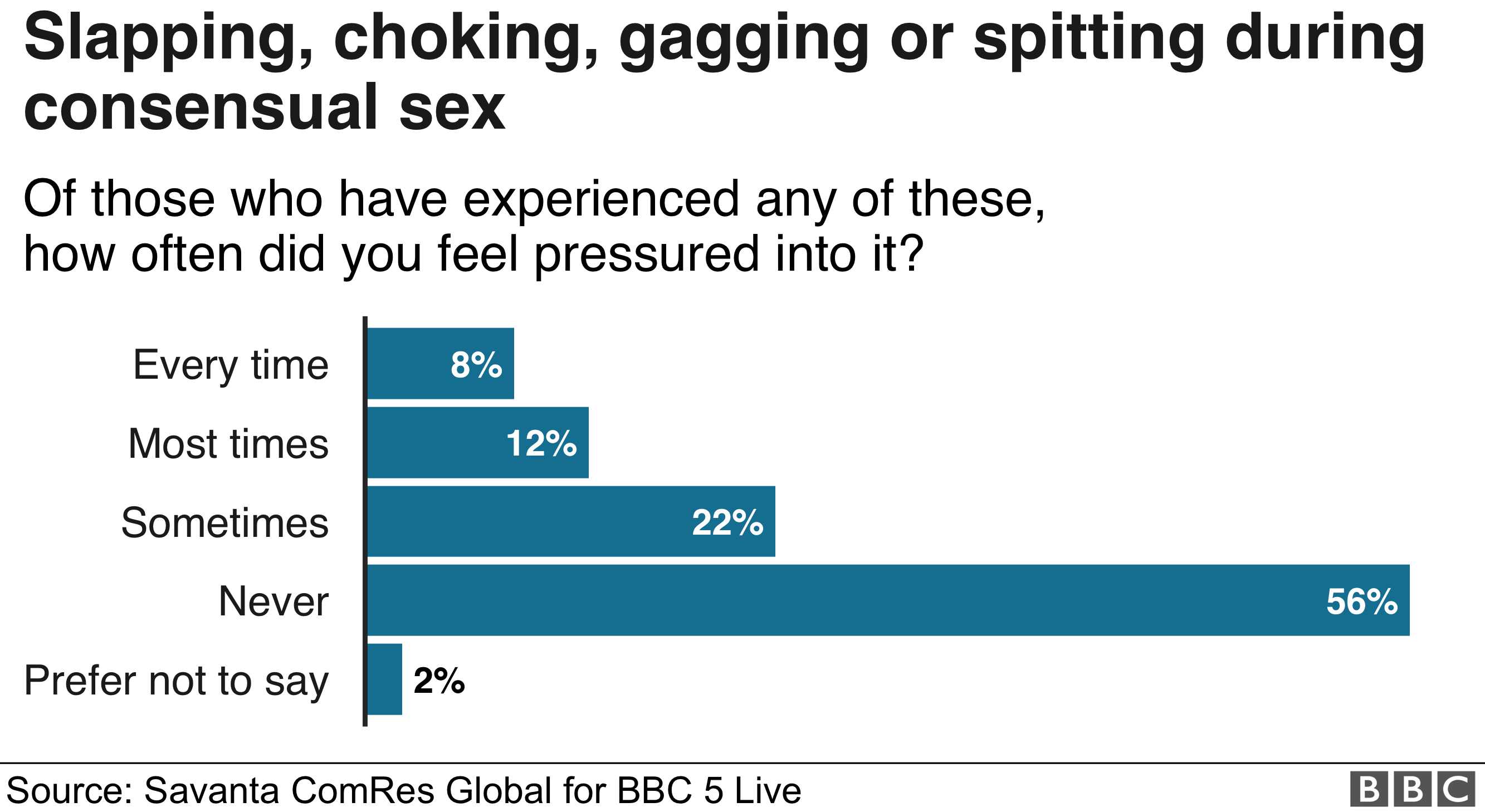It also appears that "more than a third of UK women under the age of 40 have experienced unwanted slapping, choking, gagging or spitting during consensual sex" (again from the BBC). In addition to the "unwanted" occurrences, there have also been a large number of "wanted" ones:

I'm not going to go all statistics-y on this: England is not the same as the UK; 16-24 year olds are not the same as 18-39 year olds; survey reports about personal stuff like this are no doubt less reliable than "did you eat a sandwich for lunch"-type surveys. (Also: I can't make full sense of the statistics in this piece. On the one hand, the above graph suggests that the majority of these kinds of activities were "unpressured", on the other hand, "More than a third (38%) had experienced these acts and said they were unwanted at least some of the time, while just under two-thirds of women had either experienced it and said it was never unwanted (31%), or they had no experience, didn't know or preferred not to say (31%)." Is the 38% in that quotation the same people as the 42% in the graph above? One reading of this is that most women experience these activities, but they are mostly "wanted" or "unpressured". I don't think that is what the article says, but I can't be certain.)
But the long and the short of it is that there is a large number of young women in this country who are the victims of violence, a lot of it "consensual", i.e. inflicted by themselves on themselves or by their partners on themselves, and a lot of it is straightforwardly non-consensual.
I am far from alone in thinking that self-harm, consensual though it is obviously is, is a Bad Thing. Worrying. A sign of disturbance, unhappiness or mental illness. No one in the article on self-harm regards its increase as an interesting development in leisure activities for young women: it is something "alarming", something that needs "prevention" and "intervention".
So why should we treat the "consensual" infliction of harm by sexual partners any differently? Indeed, the BBC article treats the whole business of violence during sex as a Bad Thing, consensual or not: "People do it because they think it's the norm but it can be very harmful. What we see is that for many, it devalues the relationship but - at its worst - violence becomes acceptable". Quite: as with self-harm, consent to the injury is a sign that things are bad, not good.
The modern rule for sexual morality is "always and everywhere, consenting adults = ok". I say "modern", but, what with the #MeToo movement and now violence during sex, it is already looking rusty and obsolete. But, having abandoned Christianity, what do we have to replace it?